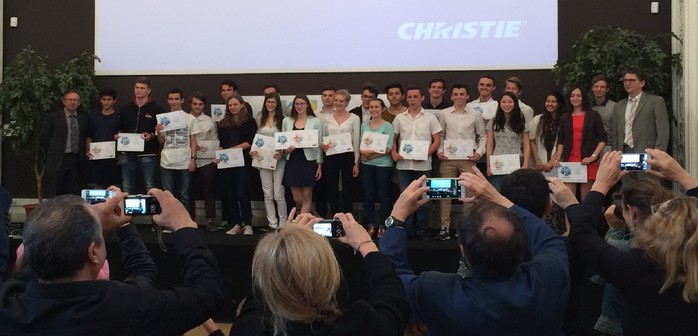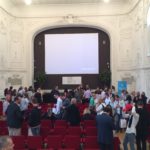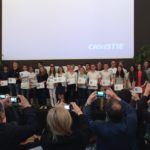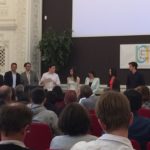The theater of the great Valrose castle hosted yesterday the students who received an award at the Mathematics and Geosciences Olympiads during a ceremony organized by the Nice Academy.
The award ceremony was opened with a speech by Jean-Marc Gambaudo, president of the Côte d’Azur University. He congratulated the 247 high school students who participated in the academic math Olympiads and the 152 students who participated in the Geosciences Olympiads.
This ceremony rewarded the top eleven candidates from the science classes, the top two candidates from other series for the math olympiads, and the top eleven winners for geosciences.
Jean-Marc Gambaudo then stated that “France needs scientists” and gave two pieces of “politically incorrect” advice according to him: research is a profession “that requires a lot of sensitivity” and you must not listen to “those who prevent you from doing what you love. There are no barriers. The real engine is the youth”.
The president of the Côte d’Azur University then handed the floor to three researchers from the Jean-Alexandre Dieudonné laboratory, based on the Valrose campus, each delivering a lecture on a specific subject.
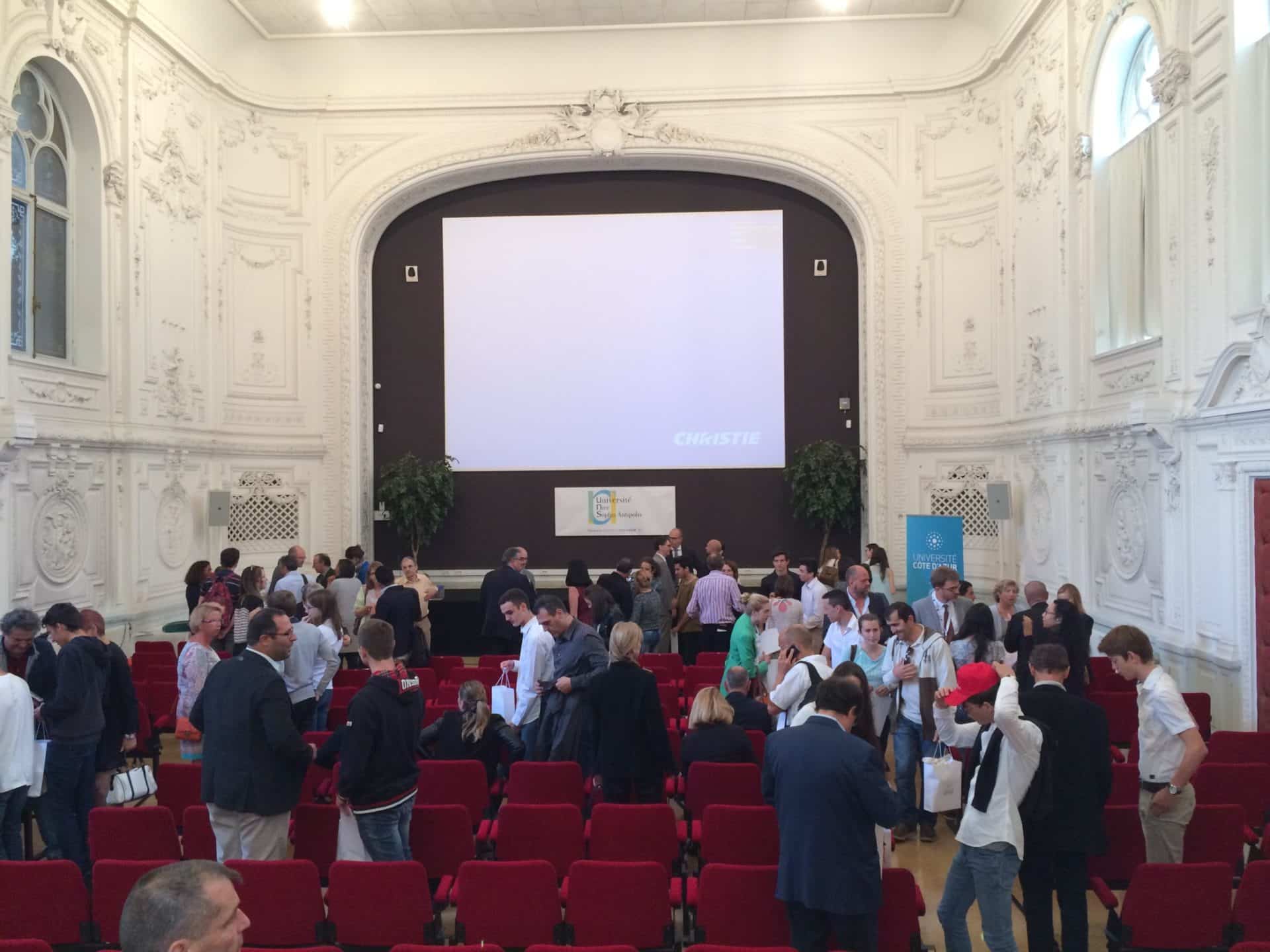
The first was presented by Frédéric Patras and focused on Egyptian fractions. It was an extension of the topic given to the high school students (a subject seventeen pages long according to Jean-Marc Gambaudo) and explained the calculations of Antiquity, including division techniques such as the greedy algorithm and Fibonacci’s algorithm.
Christophe Cazanave followed him, presenting a lecture on mathematics and the soccer ball. A current topic, with the approach of Euro 2016. During this talk, the researcher discussed the topology and shape of a soccer ball, explaining that a “classic” ball has 12 black pentagons and 20 white hexagons. The talk notably explained why it is impossible to have a ball made only of hexagons.
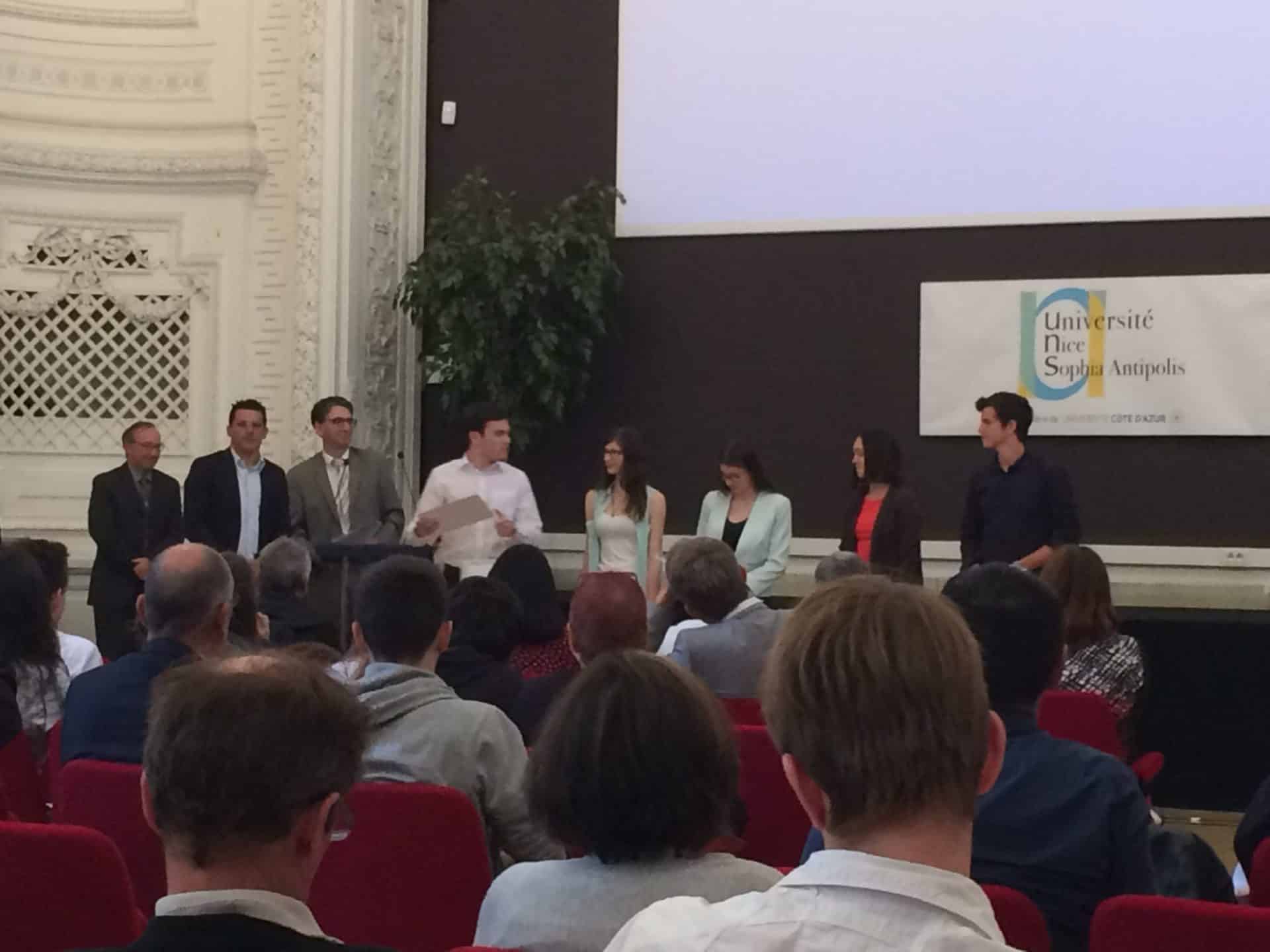
Finally, the last talk was given by Stéphane Descombes on the topic of applied math in medicine. It described the creation of a mathematical model and its simulation on a computer, in response to specific situations such as migraines with aura or stroke.
The award distribution then began with congratulations addressed to Victor Fournier, a student rewarded two days earlier at the national competition. Then the awards continued from the eleventh to the first prize. An awarded student was also selected to be part of the French team at the International Mathematics Olympiads, which will be held in Japan at the end of August. Students from Nice, Cannes, Valbonne, Toulon, or Brignoles also received a prize.
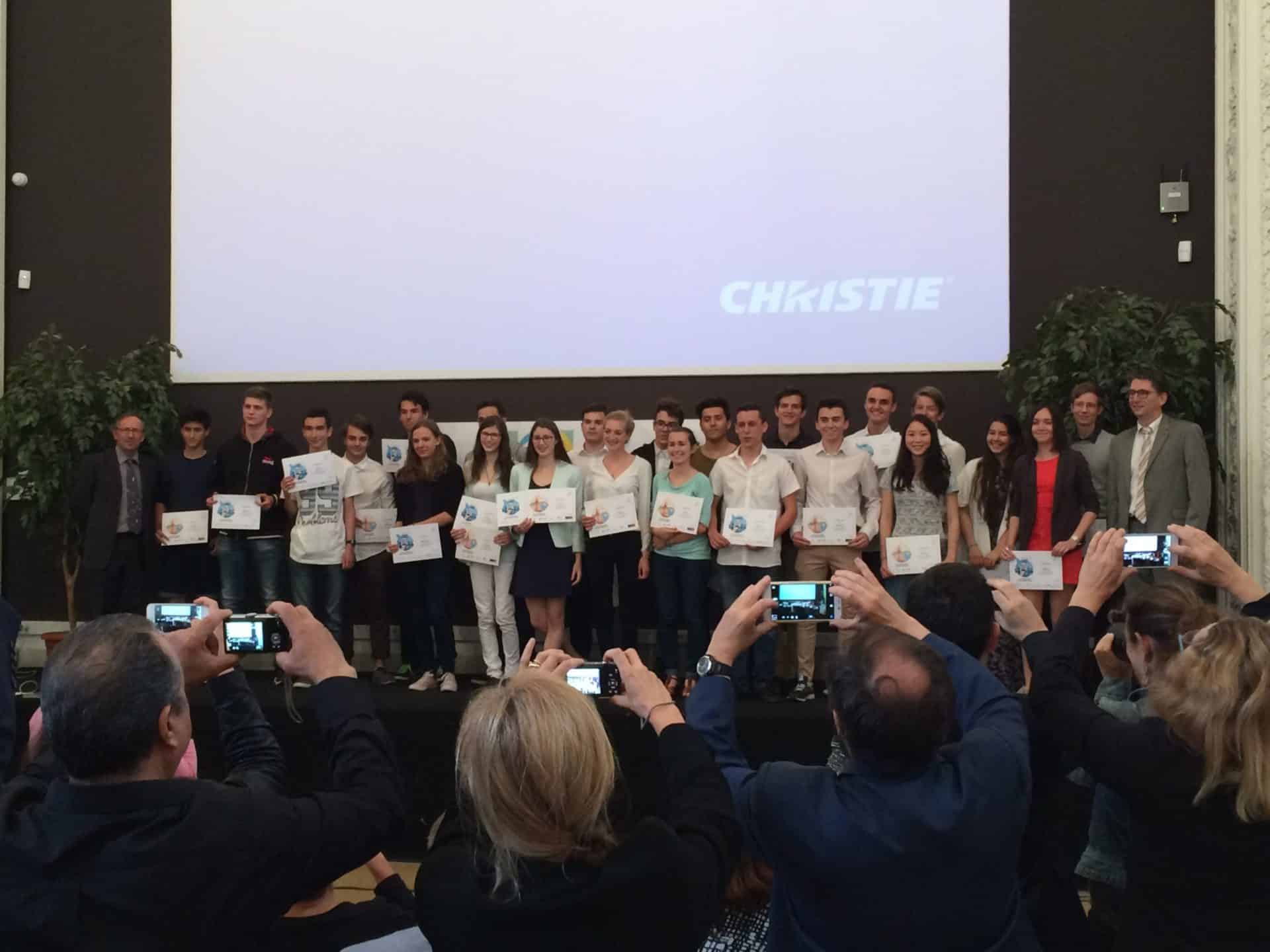
Aline Duard, winner of the first prize in geosciences, thanked “all those who inspired her to participate in these olympiads”. The first prize winners, despite being apparently intimidated, were “proud and felt valued” by this award.
